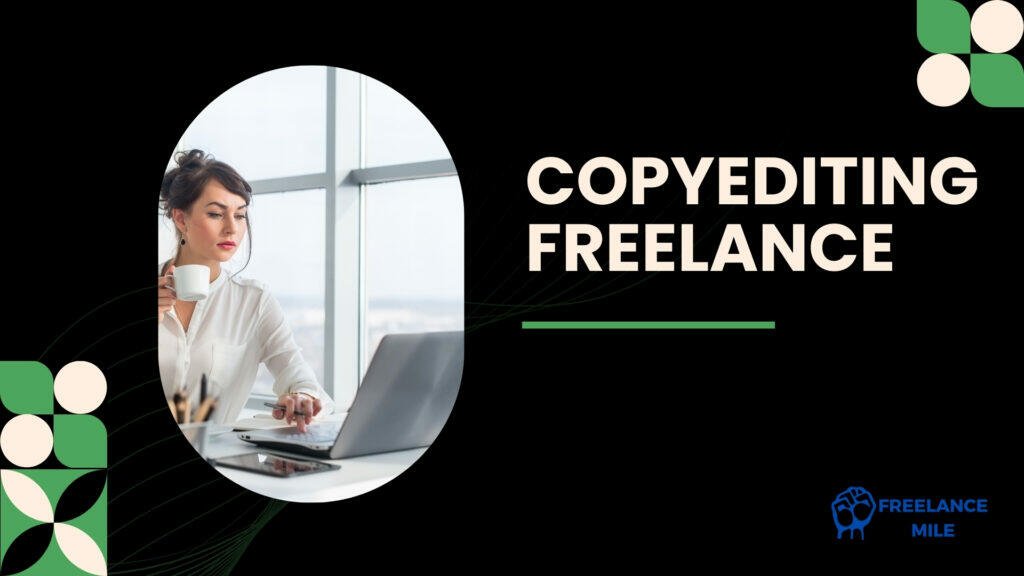Breaking the Bank? Not on My Watch!
“Wait, do you need money to start freelancing?” I can almost hear you gasp. Well, let me tell you, that’s one of the most common myths I’ve heard during my 10-year journey as a digital marketing freelancer.
But, fear not! I’m here today to bust that myth wide open. Buckle up, folks, because we’re about to dive headfirst into some cost-effective strategies for starting your freelancing journey without emptying your wallet!
The Myth: You Need Money to Make Money

First off, let’s address the elephant in the room. A widespread misconception in freelancing is the question: ‘Do you need money to start freelancing?’ But, like most viral content, it’s more sensational than factual.
The Truth: Start Small, Think Big
The reality? You can kick-start your freelancing journey with minimal to no investment. Yes, you read it right! It’s the talent, skills, and dedication you bring to the table that matter more.
Of course, having a swanky office or the latest gadgetry might be nice, but they aren’t prerequisites for success. Remember, it’s not the arrow, it’s the Indian!
Debunking Common Freelancing Myths
Even in the age of information, there’s no shortage of misconceptions about freelancing. Some say freelancers are just folks who can’t find “real jobs” or that freelancing is “too unstable”. But let’s set the record straight:
- Myth: Freelancing Isn’t a Real Job: Freelancing IS a real job. In fact, many freelancers earn more than their traditionally employed counterparts.
- Myth: Freelancers Have Unstable Incomes: Yes, freelancing can be unstable, but only if you let it be. With proper planning and management, freelancing can provide a steady income.
- Myth: Freelancing Is Lonely Work: The stereotype of the lonely freelancer couldn’t be further from the truth. Many freelancers build strong networks, collaborate on projects, and connect with clients and other professionals regularly.
- Myth: Freelancing Means Working All the Time: People often believe that freelancers are always glued to their work with no work-life balance. However, most freelancers have the freedom to set their own schedules and can achieve a better work-life balance than in traditional roles.
Reaping the Benefits of Freelancing
Let’s face it, who doesn’t love the idea of flexibility, freedom, creativity, and variety in their work life? Well, freelancing offers all of these perks and more. In fact, studies show that the freelancing sector is growing exponentially, with 59 million Americans freelancing in 2020, contributing $1.2 trillion to the US economy. Now, that’s no small beans!
Cost-effective Ways to Begin Your Freelancing Journey

Let’s get down to the nitty-gritty. How do you start freelancing without breaking the bank? Here are a few strategies:
Use Free and Affordable Tools
There are plenty of free or budget-friendly tools out there that can help you manage your work effectively like Notion. From project management apps to graphic design software like Canva, you’d be amazed at what you can get for little to no cost.
Leverage Your Existing Skills
Don’t fall into the trap of thinking you need to learn a whole new skill set to start freelancing. Your existing skills are your greatest asset. However, it’s equally important to recognize the value of continuous learning and skill enhancement in the dynamic world of freelancing.
While your current skill set can open many doors, the landscape of freelance work is always evolving. Staying abreast of new technologies, methodologies, and industry trends is crucial. This doesn’t necessarily mean a complete overhaul of your capabilities but rather a commitment to ongoing development and adaptation.
Investing time in upskilling and reskilling can:
- Keep You Competitive: As market demands shift, updating your skills ensures you remain relevant and competitive in your field.
- Expand Your Opportunities: Learning new skills or deepening your expertise in a particular area can open up new project opportunities and client segments.
- Enhance Your Value to Clients: Clients appreciate freelancers who bring fresh perspectives and up-to-date knowledge to their projects, which can often lead to repeat business and referrals.
Remember, the most successful freelancers are those who balance the utilization of their existing skills with a forward-looking approach to learning and development. This not only fuels personal growth but also keeps you at the forefront of your industry.
Network, Network, Network
Networking doesn’t have to cost a dime. Engage with people in your industry, join online forums, and participate in social media groups. It’s all about building relationships and making your presence known.
Join Popular Freelance Marketplaces
Platforms like Upwork, Fiverr, PeoplePerHour, LinkedIn Jobs offer extensive opportunities for freelancers to showcase their skills and connect with potential clients. Ensure to research and choose a platform that aligns with your skills and service needs.
Collaborate with Other Agencies or Freelancers
Building a network with other freelancers or agencies can open doors to new projects and clients. Collaboration allows for sharing resources and skills, enhancing offerings. Good relationships and common tools ensure efficient collaboration.
Writing Effective Cold Emails
This involves reaching out to potential clients with personalized emails. It’s crucial to build a connection, do thorough research on the prospects, and present yourself as a solution to their problems. This approach requires balancing between being persuasive and not intrusive.
Cold Calling Best Practices
Although challenging, cold calling can be an effective lead generation tactic. It involves directly calling potential clients to offer your services. This involves conquering the fear of rejection and honing your approach through feedback and practice.
Implementing these strategies can help kickstart a successful and budget-friendly freelancing career.
Platform-Specific Insights
One might ask, ‘Do you need money to start freelancing?’ especially when considering platform fees. Here’s a summary with links to their fee pages for the latest information:
- Upwork: Fees range from 5% to 20% based on lifetime billings with a client. Upwork Fee Structure
- Freelancer: Charges a project fee of 3% or $3.00, whichever is greater, for fixed-price projects; hourly projects have a 3% fee. Freelancer Platform Fees
- Fiverr: Freelancers are charged a flat 20% fee on transactions. Fiverr Fees
- LinkedIn: Currently, no fees are charged for connecting clients with freelancers. LinkedIn Marketplace
Each platform also has its own approach to bidding costs:
- Upwork: Requires “Connects” for bidding, with each Connect costing $0.15. Upwork Connects
- Freelancer: Offers free bidding, with optional bid upgrades. Freelancer Platform Bidding
- Fiverr: No bidding system; freelancers list services and clients approach them directly. How Fiverr Works
- LinkedIn Services Marketplace: Allows free listing of services; no bidding fees.
Refer to these links for the most current fee information, as platform fees may change after the publication of this article.
Choosing the Right Platforms for Freelancing
Not all freelancing platforms are created equal. While some are generalist platforms like Upwork, others are niche-specific like Toptal for tech professionals. Do your homework, compare the popular platforms, and choose the one that aligns with your skills and goals.
Practical Tips for a Successful Freelance Launch
Getting started with freelancing is one thing, but maintaining success is a whole different ball game. Here are some tips to help you navigate the freelance waters:
- Manage your time wisely. Remember, you’re your own boss now.
- Build and maintain positive client relationships. Happy clients mean repeat business.
- Differentiate yourself. In a sea of freelancers, be a dolphin.
Long-Term Freelancing Success
The road to freelancing success is paved with perseverance, patience, and personal branding. Don’t just aim to be a freelancer; aim to be a brand. This will help you scale your freelance business sustainably.
Testimonials from Successful Freelancers
Freelancing has enormous potential, as evidenced by the success stories of people who have made it a reality in their lives. For instance, one media freelancer shared how freelancing allowed him to significantly improve his skillset and resilience, while a web developer found his premium client through a Facebook group.
Each of these stories highlights the challenges and opportunities of freelancing, providing valuable insights for aspiring freelancers.
So, are you ready to start your freelancing journey? Remember, the road to success may be bumpy, but it’s definitely worth the ride!
Legal and Financial Aspects of Freelancing
Freelancing is like cruising down the highway in a shiny new convertible – the freedom is exhilarating, the possibilities seem endless. But, just like you wouldn’t forget your seatbelt, there are legal and financial aspects you need to buckle up before enjoying the ride. So, let’s dive into the nitty-gritty of taxes, fees, invoices, and contracts.
Understanding Taxes and Fees
A common phrase in the freelancing world is “Don’t forget to pay your taxes!” Now, that might not be as catchy as “Carpe Diem,” but it sure is just as important.
As a freelancer, you are essentially running your own business. This means Uncle Sam expects you to contribute your fair share to the national coffers. Depending on your income level and location, you’ll be subject to federal, state, and sometimes even local taxes. Not to mention, the dreaded self-employment tax, which covers Social Security and Medicare.
To prevent any unexpected issues during tax season:
- Keep track of your income and expenses: There are numerous apps and software available to make this task a breeze.
- Set aside a portion of your income for taxes: A safe estimate is around 20-30% of your net earnings.
- Consult a tax professional: They can help you understand tax deductions and credits specific to freelancers.
A Basic Guide on Legal and Financial Responsibilities for Freelancers
Remember that shiny convertible we talked about? Well, consider this section your user manual.
- Keep it professional: Always use contracts to protect your rights and ensure you get paid for your hard work.
- Stay organized: Keep records of all your invoices, receipts, and contracts. Trust me, future-you will thank you.
- Understand your fee structure: Make sure to clearly communicate your fees to clients, whether you charge hourly, per project, or on retainer.
Resources for Handling Taxes, Invoices, and Contracts
In the digital age, we’re lucky to have a wealth of resources at our fingertips to help navigate the sometimes choppy waters of freelancing. Here are a few worth checking out:
- Quickbooks: For easily managing your invoices and tracking expenses.
- legaltemplates.net: Offers a wide range of customizable contracts.
- Canva: You can design invoices using their free or paid templates.
Final Thoughts
Ever heard of a self-made millionaire? Well, in the freelancing world, you can become a self-made success, sans the million-dollar investment. So, next time someone tells you that you need money to start freelancing, remember the strategies we discussed today and smirk knowingly. After all, you’re now armed with the secret sauce to kick-start your freelancing journey on a shoestring budget!
Alright, are you ready to shake the freelancing world? Let’s get started, and remember, the only investment you truly need is your dedication and hard work. With that, you’re already halfway there!
Conclusion
So, returning to our initial question: ‘Do you need money to start freelancing?’ As we’ve seen, the answer is more about ingenuity than investment. Freelancing can be a rewarding and liberating career choice. But, like any worthwhile endeavor, it comes with its share of responsibilities. By understanding and preparing for the legal and financial aspects, you’re setting yourself up for smooth sailing on your freelancing journey.
So buckle up, freelancers. The open road of opportunity awaits. And remember, the folks here at freelancemile.com are always ready to help guide you on your journey. Happy freelancing!




